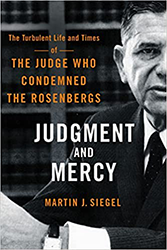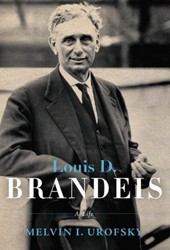In the first months after Hitler came to power in Germany, the Nazis enacted the July 1933 Law for the Prevention of the Genetically Diseased Offspring, which allowed for Nazi “genetic health Courts” to forcibly sterilize any citizen who suffered from a list of alleged genetic disorders. This law designed to eliminate “lives not worth living” culminated in the Nazi Euthanasia program, initiated in 1939, which led to the death of over 200,000 “unfit” German citizens.
The Nazi law came six years after the United States Supreme Court in Buck v. Bell (1927), an 8 – 1 ruling upheld a Virginia law which allowed for the eugenic sterilization of undesirable citizens for the greater good of the country. At the center of the court case was Carrie Buck, a young woman, who was deemed “feebleminded” and shipped off to the Virginia-based Colony for Epileptics and Feeble-Minded. She was forcibly sterilized following the Supreme Court decision, although it was later shown that she was healthy and mentally able.
The court’s majority opinion was given by Justice Oliver Wendell Holmes, Jr., a Social Darwinist who believed that the Nordic Protestant elite was threatened by the influx of immigrants from Southern and Eastern Europe as well as the increasing high birth rate by “imbeciles, morons, and idiots.” Holme’s conclusion reached its apex when he wrote: “Three generations of imbeciles is enough.”
Imbeciles is the gripping history of Buck v. Bell, wherein Carrie Buck and a careless attorney were pitted against scientists , lawyers, and judges who believed that eugenic measures were necessary to save the nation from being “swamped by incompetence.” Cohen, a former member of The New York Times editorial board, a senior writer for Time magazine, and a graduate of Harvard Law school, tells the story with great passion and provides the reader with a history of the American Eugenics movement , which in its heyday, was not only responsible for the passage of The National Origins Act in 1924, which sought to protect the white Anglo-Saxon majority by curbing immigration (Hitler praised Congress’s passage of the act) but was also comprised of geneticists like Madison Grant and Harry Laughlin who were antisemitic. Cohen notes that Grant’s theories about racial superiority and the need to forcibly deal with the weak and defective greatly influenced the Nazis who translated his writings into German. Part of Mein Kampf and later Nazi racial policies “appeared to borrow directly from Grant’s The Passing of the Great Race, later discovered in Adolf Hitler’s personal library.
Indeed, Cohen makes a strong case that American genetic theory was not only an influence for Nazi Germany’s deadly racial hygiene laws but indirectly to an immigration policy that prevented many Jews in the 1930s from seeking a refuge from Nazi persecution in the United States.
Related Content:





